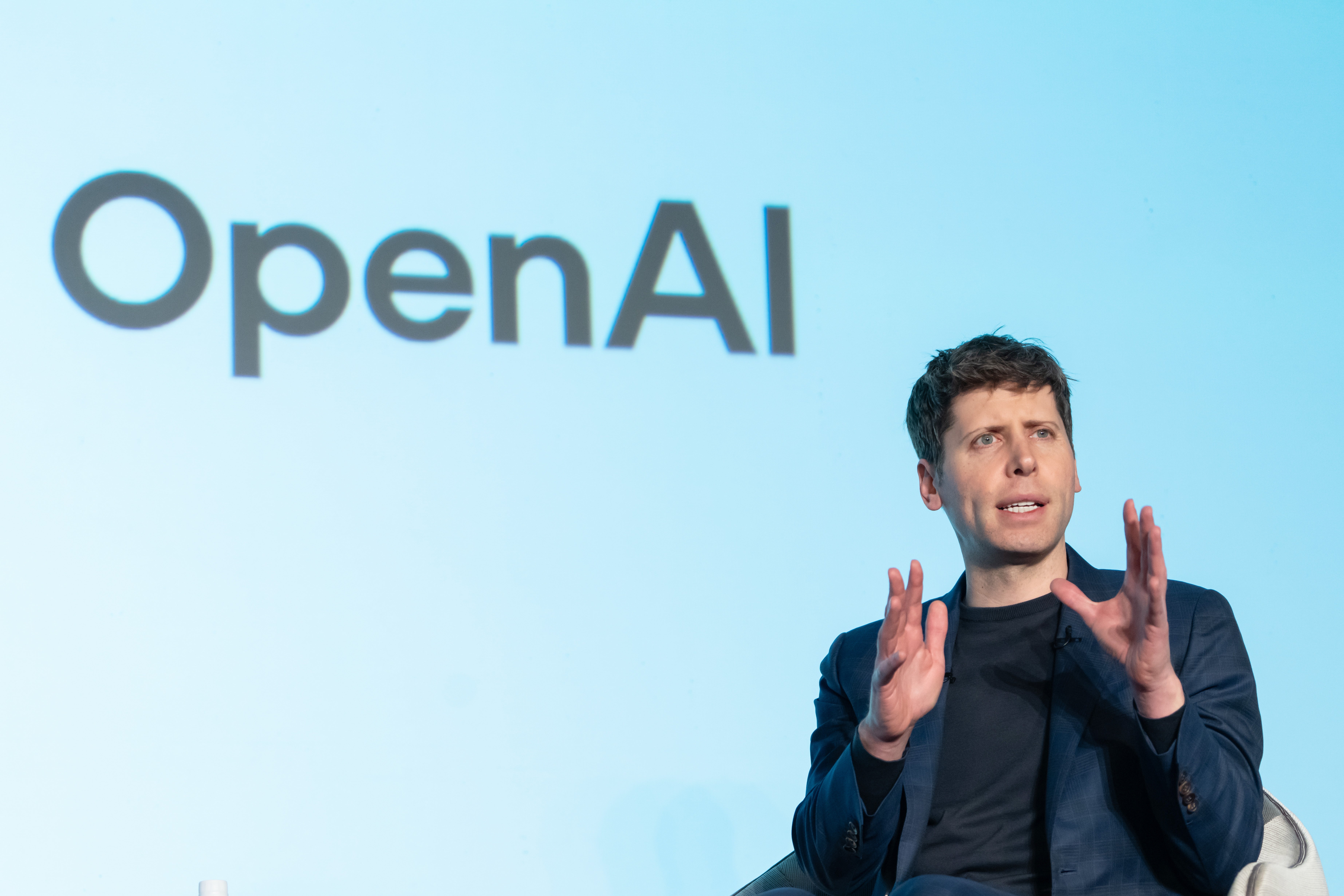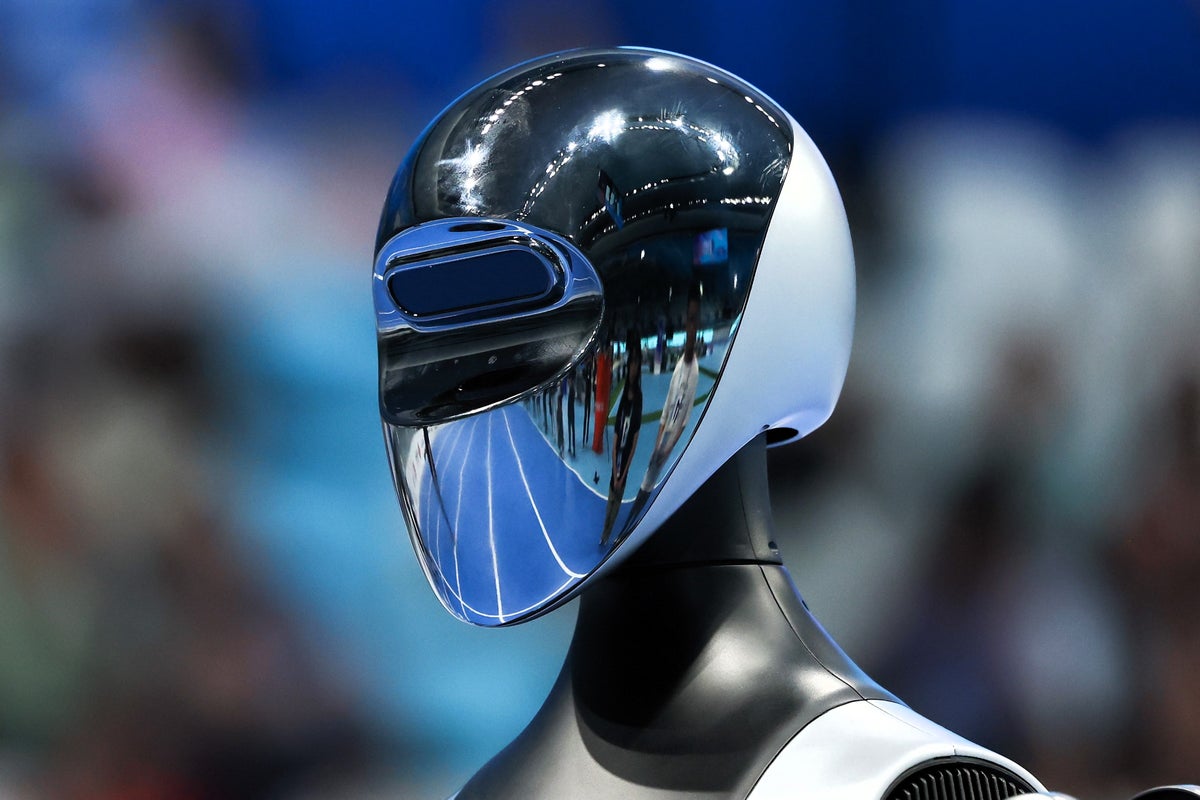The numbers are so high that they are almost impossible to understand. Nvidia’s latest revenues showed it earned $47bn (£34.7bn) in the second quarter of the year, up 56 per cent on the year before. But that was not high enough, and after the results were made public, the company’s share price actually fell. Of particular concern was the company’s data centre revenues: up 56 per cent at $41bn, but not as much as analysts had expected.
Because Nvidia makes the chips that power many of the world’s largest AI companies, its stock has become something of a proxy for the AI boom; most of the more exciting technology firms aren’t listed, so investing in the chips that actually power their software is a good way to put money behind the belief that artificial intelligence will change everything.
But in much the same way, the latest drop might be a perfect illustration for the dangers behind that same AI boom: when expectations are impossibly high, and so detached from the actual reality of the technology being produced, even unprecedented successes might not be successful enough.
Nvidia’s performance had been seen as a test for the ongoing sustainability of the AI boom because its reporting came at the end of a shaky few days. In recent weeks, big tech companies’ shares have faltered a little, amid concerns that the investment being made in AI might not actually pay off at all. They came amid comments from even very enthusiastic business leaders such as OpenAI’s Sam Altman, who suggested that some investors might be getting overexcited; in his own case, the long-promised update to ChatGPT that he believed could revolutionise the technology had to be rolled back because users were upset and annoyed with it.
That overexcitement means that, as Nvidia has found, it is not enough to simply help produce a breakthrough technology that could lead to dramatic gains across a variety of industries. AI companies have been promising a kind of magical revolution, and people have believed them, so the results are going to have to match up to that. Because the AI boom is not really built on the technology at all, but a broader, swirling set of circumstances that have led to tech stocks and companies’ reputations becoming unmoored from the actual things they produce.

open image in gallery
Even OpenAI’s CEO Sam Altman has indicated that investors might be getting overexcited over AI (Getty)
It has happened before. If you open up the Reddit forum for NFTs, you’ll find some people still trying, but mostly failing to push them as revolutionary tech. It still has 2.7 million members – putting it in the top 1 per cent of all communities on the site – but the most popular post of the last year got a mere 130 upvotes, and is someone trying to push a series of pictures that depict a gender-flipped version of Elon Musk, named “Elona Mars”, and which appears to have proven popular almost entirely because people hate it so much.
Many of the people who pushed NFTs have no doubt moved on, and many of them have spent the last couple of years doing much the same with artificial intelligence. Helpfully, they can recycle many of the same formats: grand claims about how this is going to change everything, the latent threat that you’ll be late to it if you don’t jump in now, all communicated through the same algorithm-baiting post formats. And now there has been some of the same falling enthusiasm, as AI stocks struggle a little and more and more people voice concern about whether all of those big bets will really pay off.
The trouble, of course, is that there is something to artificial intelligence; NFTs quickly became a joke because there was little else to them, which made it very easy to see that anyone who had stuck with them with any endurance and enthusiasm probably was doing so as part of their own grift. There is something substantial coming with AI – it’s already here – and so it’s not quite as easy to adopt the same blanket cynicism.
At some point, the heads of the very highly valued AI companies are going to have to start making the case that the technology is not only exciting but truly valuable, too
But all of that hype has made it difficult, if not impossible, to know what is grift and what is reality. The people aren’t quite so clear-cut, since even the bosses of respectable AI companies are given to making grand claims that are both prediction and PR. The output is almost the same: while AI might prove useful in various concrete ways, the main thing we are forced to look at is generative slop, and it seems precisely formulated to provoke wonder around how it was made, combined with an indistinct mix of horror, uncanniness and fear. The question no longer seems to be about whether AI is good and important, but what it actually means to be good and important in an era when it feels like so many people are on the make.
It’s worth remembering that much of the new pessimism that led to the current crash wasn’t really about the meaningful changes that AI might bring. It was because OpenAI released GPT-5 and it was disappointing. The big problem was not that it was disappointing to the people who were hoping to rely on it to do new kinds of work – though it was that, a little, too. Nor that it was disappointing to those who had hoped that simply training new models with more precision and more data would keep bringing dramatic improvements, though that is the really substantial new finding of GPT-5, in my opinion. Instead, the problem was that it wasn’t nice enough.
As soon as GPT-5 came out, many of its most vocal users complained that it wasn’t giving them the warmth that they expected. That its answers were short and to the point, rather than encouraging and toadying like they had been before. And it was this that its creators OpenAI responded to most strongly, offering ways to go back to the old model or customise the new one. So much of the conversation around AI is dressed up in serious office clothes, but is basically about whether it’s fun and nice to use. (That might well end up being the primary use, especially if Meta gets its way, with Mark Zuckerberg seeming most enthused about AI when he gets to talk about people making up friends; the company is struggling to retain some of its top AI talent, despite paying them rumoured pay packages of up to $300m, and presumably the fact that the technology could just be used to keep you looking at Instagram on your phone is part of the reason it’s uninteresting.)
.jpeg)
open image in gallery
Many complaints about ChatGPT’s newest update were because people felt it wasn’t as nice as its earlier iterations (AFP/Getty)
At some point, the heads of the very highly valued AI companies are going to have to start making the case that the technology is not only exciting but truly valuable, too. ChatGPT may well be revolutionary, but now every big company has caught up, and the technology underpinning it is basically transferable. For years, those companies have been able to operate amid a kind of vague hype, but the boom may falter when the real questions start coming in. The real trick to successfully investing in the AI boom is going to be about anticipating exactly when that will happen.
This has been much of the story of this decade. When Covid-19 kept us at home and some people received large checks, it made for a perfect storm of betting on the future; with capital and less reason to think about society or the people in it, many people spent a lot of time trying to outsmart everyone else in the financial markets. Add to that the suspicion of authority, the fraying of the communities that have kept us from loneliness, and an increasing sense that the current state of things can’t hold for long, and it means that everyone is both terrified and desperate for the next thing.
Or they’re desperate, perhaps, to be the one who spots the next thing coming. What brings all those big trends of this decade together – cryptocurrencies, NFTs, augmented reality, frenzied stock trading on Nvidia and Tesla and others, and now AI – is that they feel energised not by excitement about what is about to happen but by the terror of being late to it. And when vibes and hype underpin so much of what counts as the future, it feels both concerning and completely natural that global markets would be derailed by a chatbot that was just a little more brusque than usual.
